Teresa Pocock’s Artistic Ability is Celebrated During Canadian Down Syndrome Week!
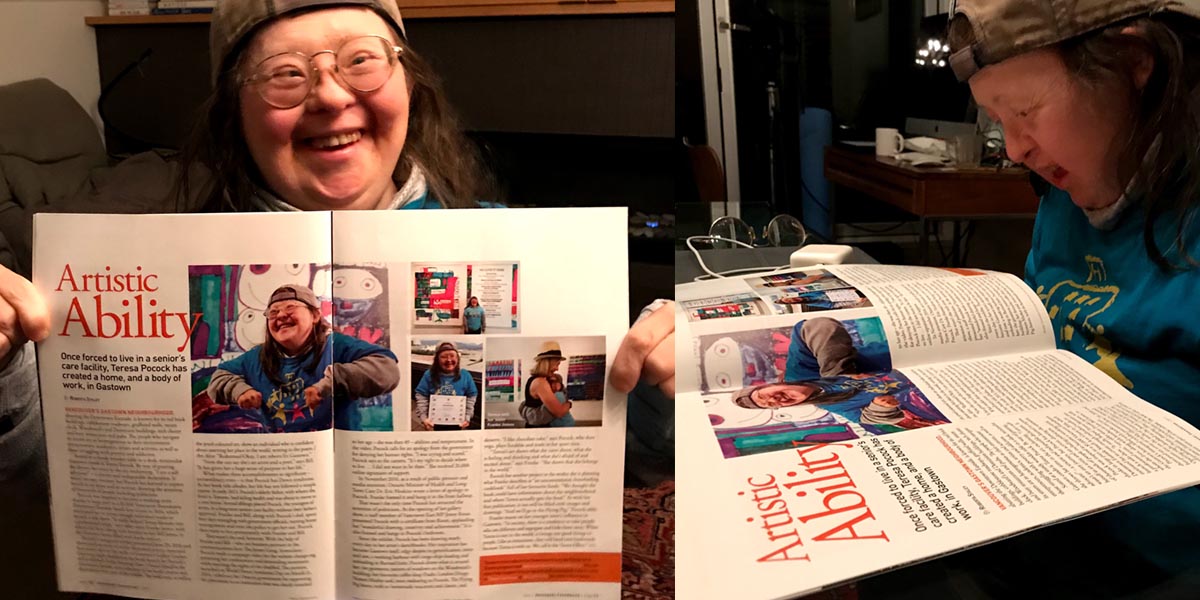
Teresa Pocock’s “Artistic Ability” is featured in The Vancouver Foundation’s annual 2017 magazine, “Gifts of Inclusion”. This is perfect timing as November 1st to 7th is Canadian Down Syndrome Week — a week to celebrate the talents of people with Down syndrome and “See the Ability”. #CDNDownSyndromeWeek.
Read the Vancouver Foundation article by Roberta Staley below…
Artistic Ability
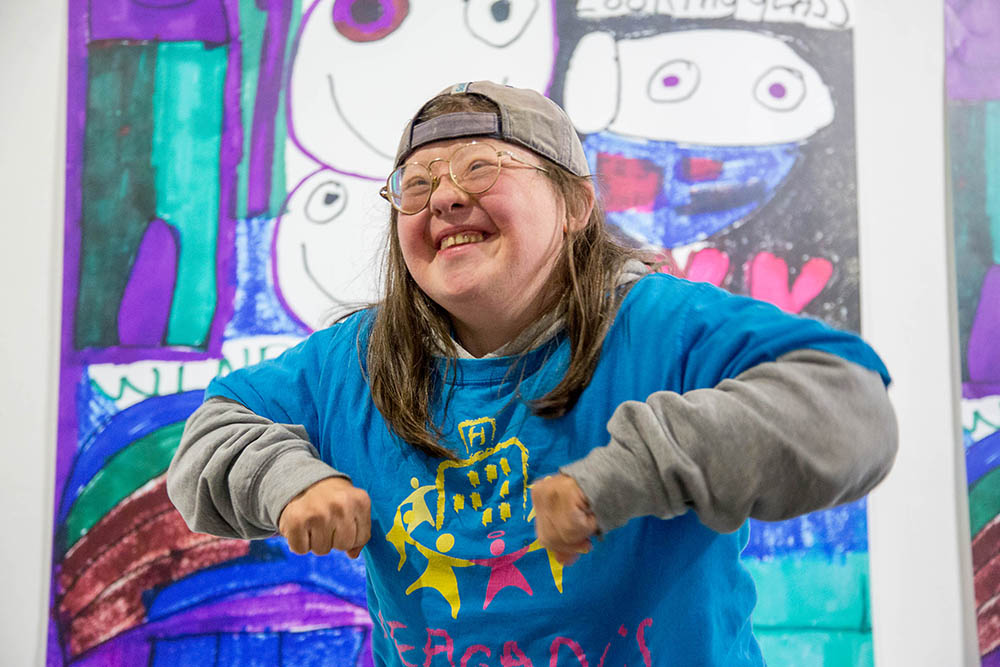
Once forced to live in a senior’s care facility, Teresa Pocock has created a home, and a body of work, in Gastown
VANCOUVER’S GASTOWN NEIGHBOURHOOD, abutting the Downtown Eastside, is known for its red brick buildings, cobblestone roadways, graffitied walls, steam clock, Woodward’s and Dominion buildings, tech cluster and busy restaurants and pubs. The people who navigate its streets are as heterogeneous as their environment: entrepreneurs, academics, artists and activists, as well as those struggling with poverty and addiction.
Seated at a sturdy wooden table in a sleek, minimalist Gastown condo is Teresa Pocock. By way of greeting, she throws her arms in the air, exclaiming, “I am a self advocate!” – a sincere and indisputable declaration. It wasn’t an easy journey, but Pocock has learned to express herself as an artist and an activist, drawing the attention of thousands of people including politicians.
Pocock was inspired to become a working artist thanks in large part to a $1,000 Vancouver Foundation Downtown Eastside Small Arts Grant in 2016, which motivated her to create enough individual works to launch a solo show. “It really helped Teresa blossom into a professional artist,” says older sister Franke James, with whom she lives, along with brother-in-law Bill James, in the Gastown home filled with books and art.
Pocock’s inaugural exhibit premiered June 29, 2016 and showcased an array of richly illustrated poetry, mounted bus-poster size on the walls of Gastown’s Gallery Gachet. Opening night doubled as the book launch for Pocock’s self-published Pretty Amazing: How I Found Myself in the Downtown Eastside, and a selection of the book’s poems and illustrations were part of the exhibit. The bold verse, as well as the jewel-coloured art, show an individual who is confident about asserting her place in the world, writing in the poem I Am Alive: “Redeemed/Okay, I am reborn/In Gastown.”
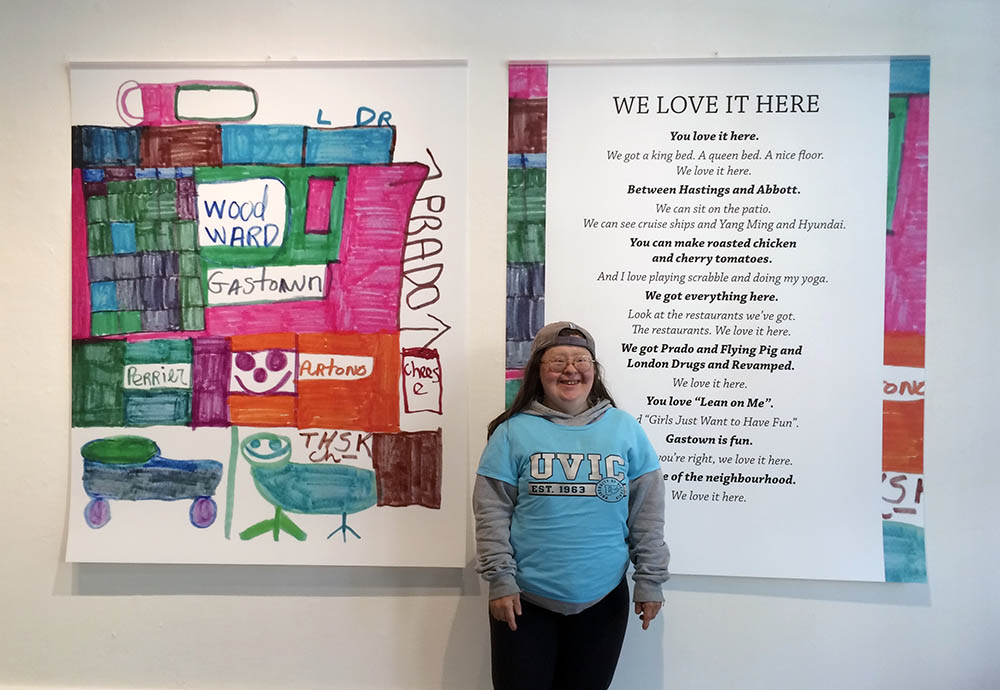
“Now she can say she’s an artist and a poet,” says Bill.
“It has given her a huge sense of purpose to her life.”
What makes these accomplishments so significant – extraordinary even – is that Pocock has Down syndrome.
As her book title alludes, her life has not followed a simple
course. In early 2013, Pocock’s elderly father, with whom she
lived in Toronto, had failing health and was about to move to
a care home. Several siblings placed Pocock, the youngest of
seven, in a long-term seniors care facility without their father’s
approval. Franke and Bill, along with Pocock’s dad, spent
four days wrangling with government officials, nursing home
management and even the police to get her out. Pocock
then went to live permanently with Franke and Bill.
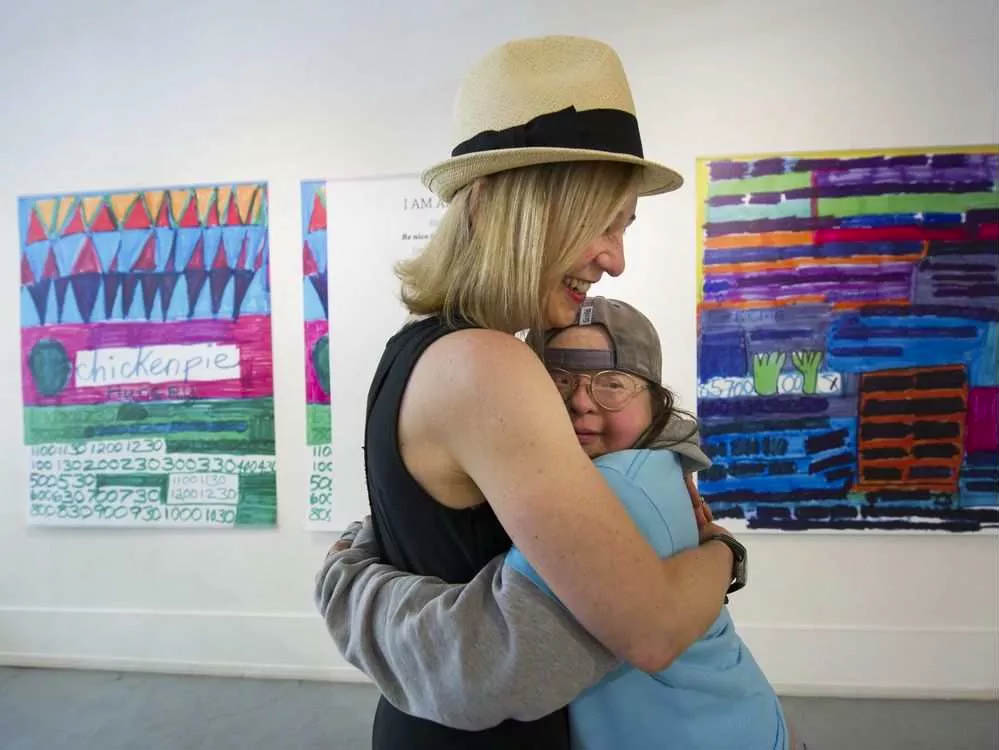
That wasn’t the end, however. With the help of
Franke and Bill – who are business partners in the
communications firm The James Gang, Iconoclasts –
Pocock made a campaign video for the website change.org
protesting her confinement and demanding atonement
while asserting the rights of the disabled. The petition,
launched on World Down Syndrome Day on March 21,
2014, called out the Ontario government for supporting
her placement in an institution that was clearly unsuited to her age – she was then 49 – abilities and temperament. In
the video, Pocock calls for an apology from the government
for denying her human rights. “I was crying and scared,”
Pocock says to the camera. “It’s my right to decide where
to live … I did not want to be there.” She received 26,000
online signatures of support.
In November 2016, as a result of public pressure and media attention, Ontario Minister of Health and Long- Term Care Dr. Eric Hoskins wrote a letter of apology to Pocock. Franke framed it and hung it in the front hallway.
That wasn’t the only time Pocock has attracted the
attention of politicians. At the opening of her gallery
show, a staff member of Vancouver East MP Jenny Kwan
presented Pocock with a certificate from Kwan, applauding
her “wonderful drawing, creativity and achievement.” It is
also framed and hangs in Pocock’s bedroom. 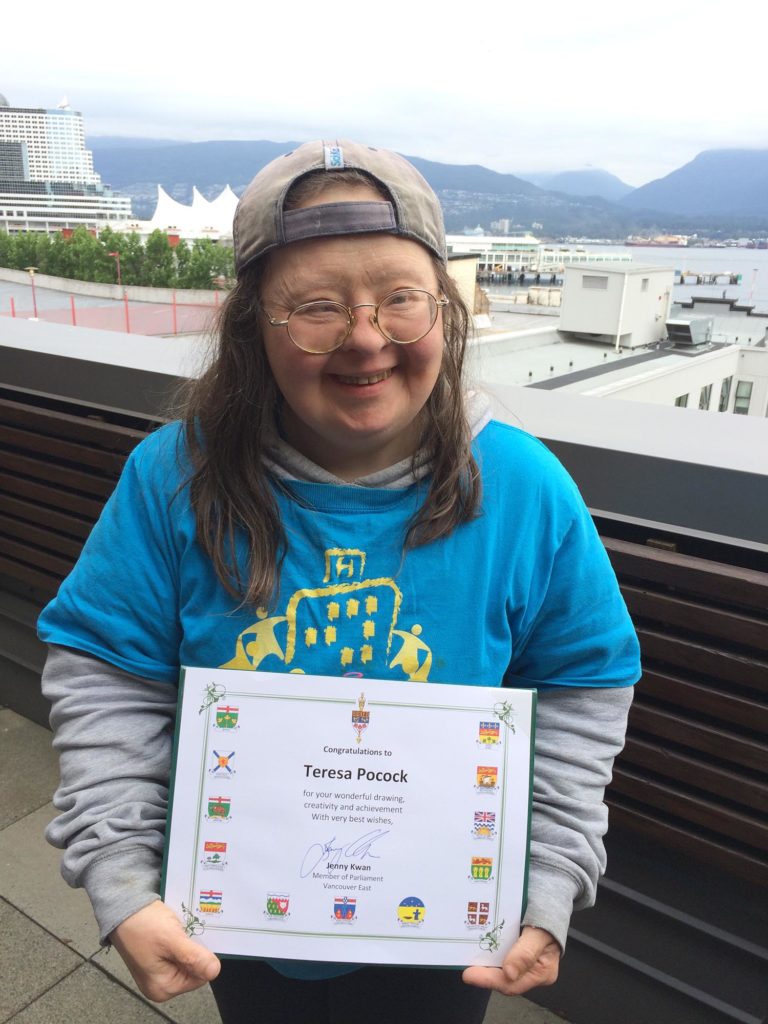
Since the exhibit, Pocock has been drawing nearly every day in her artist’s sketchbooks. Her inspiration has become Gastown itself, edgy despite its gentrification, noisy and raw, a working harbour with cargo ships loading and unloading in Burrard Inlet. Pocock draws what is around her: the geometric pattern of windows on the Woodward’s building; her favourite coffee shop Prado; London Drugs; Nesters Market and, most endearing to Pocock, The Flying Pig bistro, with its homemade macaroni and cheese, and desserts. “I like chocolate cake,” says Pocock, who does yoga, plays Scrabble and reads in her spare time.
“Teresa’s art shows what she cares about, what she is feeling and thinking and what she’s afraid of and excited about,” says Franke. “She shows that she belongs in the world.”
Pocock has another project in the works; she is planning what Franke describes as “an unconventional, freewheeling cookbook” full of her favourite foods. “We thought the book could have information about the neighbourhood and where Teresa actually gets the food.” As with her first publication, it too will be filled with images and drawings. “And we’ll go to the Flying Pig,” Pocock adds.
Franke muses on her younger sister’s influence in Gastown. “In society, there is a tendency to take people who are different and segregate and hide them away. When Teresa is out in the world, it brings out good things in people. Like at restaurants, they will bend over backwards because Teresa is with us. We call it the Teresa Effect.”
To learn more about the Downtown Eastside Small Arts Grants program visit vancouverfoundationsmallarts.ca. You can also help support this program with a donation. Call Kristin in Donor Services at 604.629.5186 for more information.
CREDITS
“ARTISTIC ABILITY” written by ROBERTA STALEY for the Vancouver Foundation.
Read The Gifts of Inclusion, Vancouver Foundation’s 2017 Annual Magazine. Also available in eReader version. Or download the Adobe Acrobat PDF
PHOTOGRAPHS
Photo by Zack Embree 
Photo by Gerry Kahrmann for PostMedia (licensed):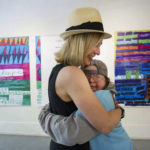
Help open eyes and hearts to “See the Ability” of those with Down syndrome. Join in raising awareness about the abilities and unique gifts of people with Down syndrome during #CDNDownSyndromeWeek. Spread the word!


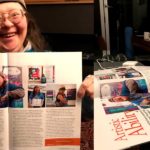

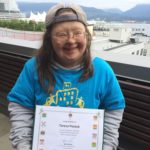
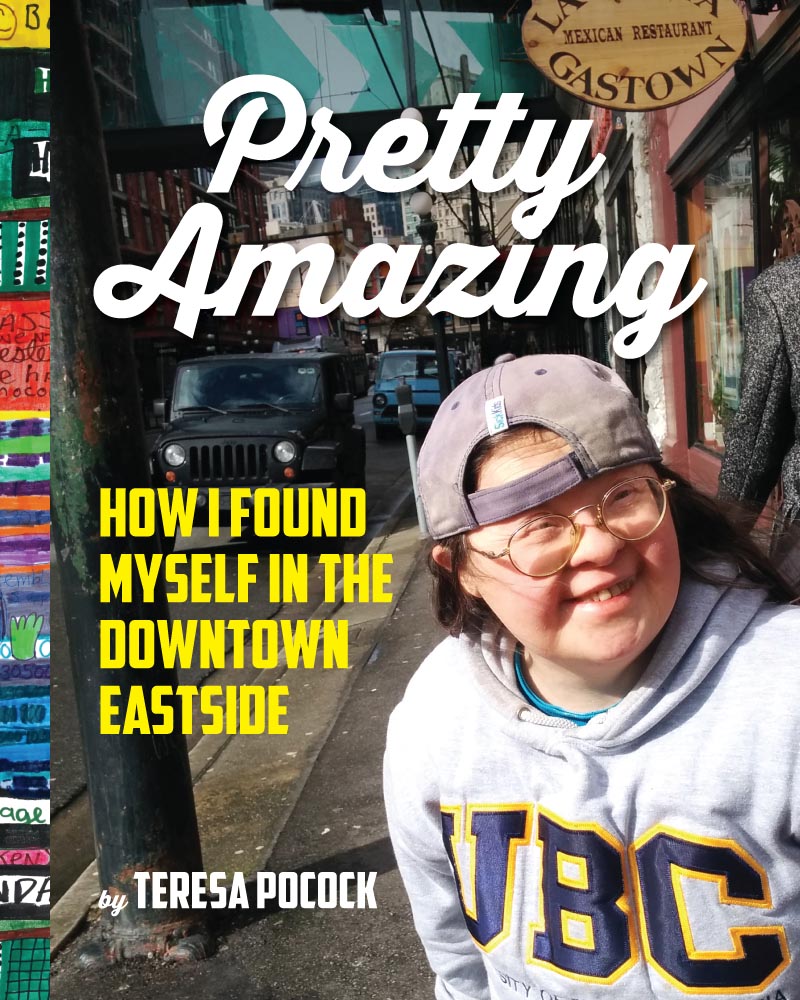
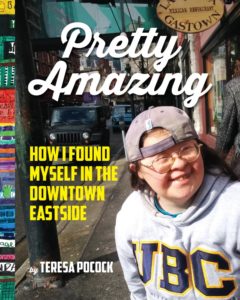 Teresa Pocock is an artist and poet living in the Downtown Eastside of Vancouver. In 2016, she won a DTES Small Arts Grant from the Vancouver Foundation which enabled her to create her first book,
Teresa Pocock is an artist and poet living in the Downtown Eastside of Vancouver. In 2016, she won a DTES Small Arts Grant from the Vancouver Foundation which enabled her to create her first book, 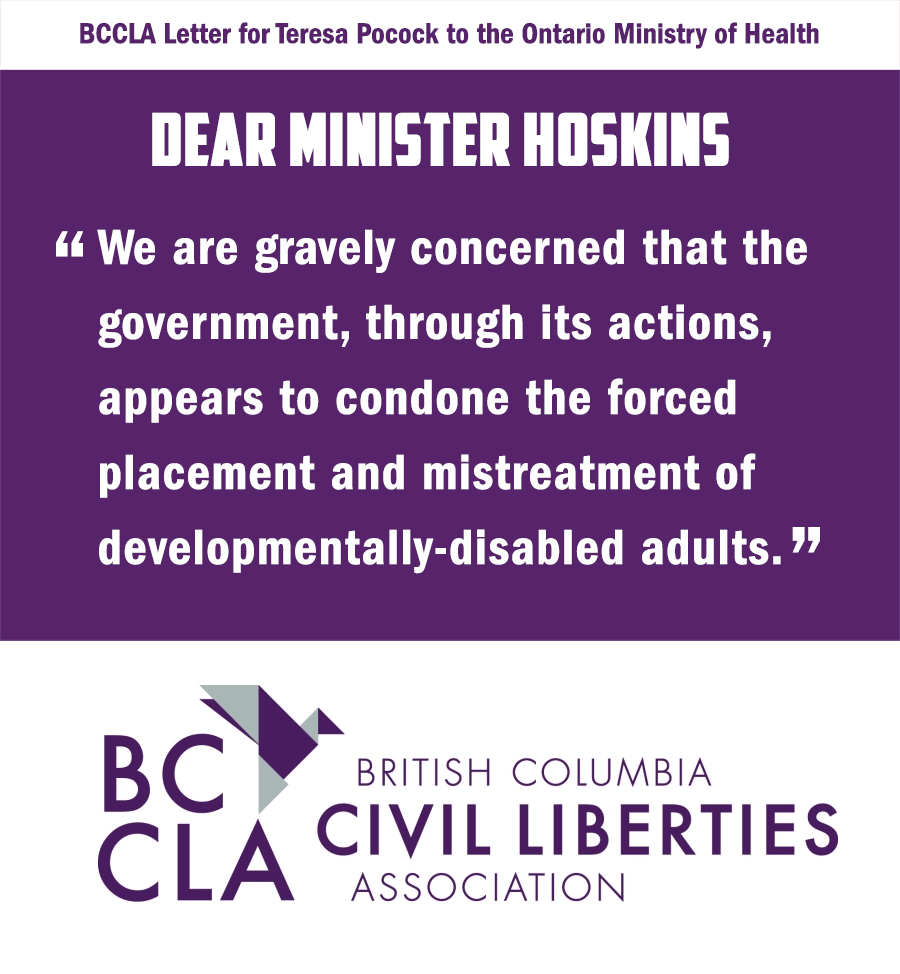



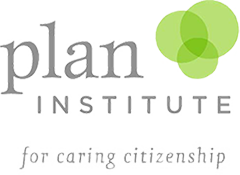


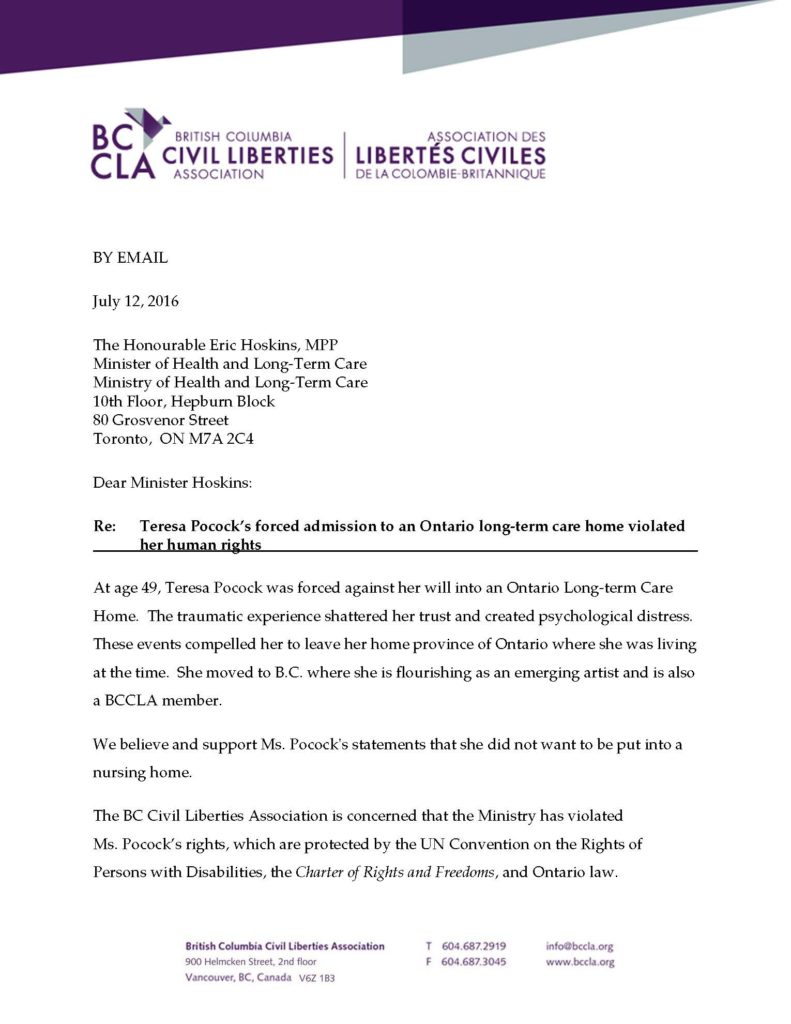
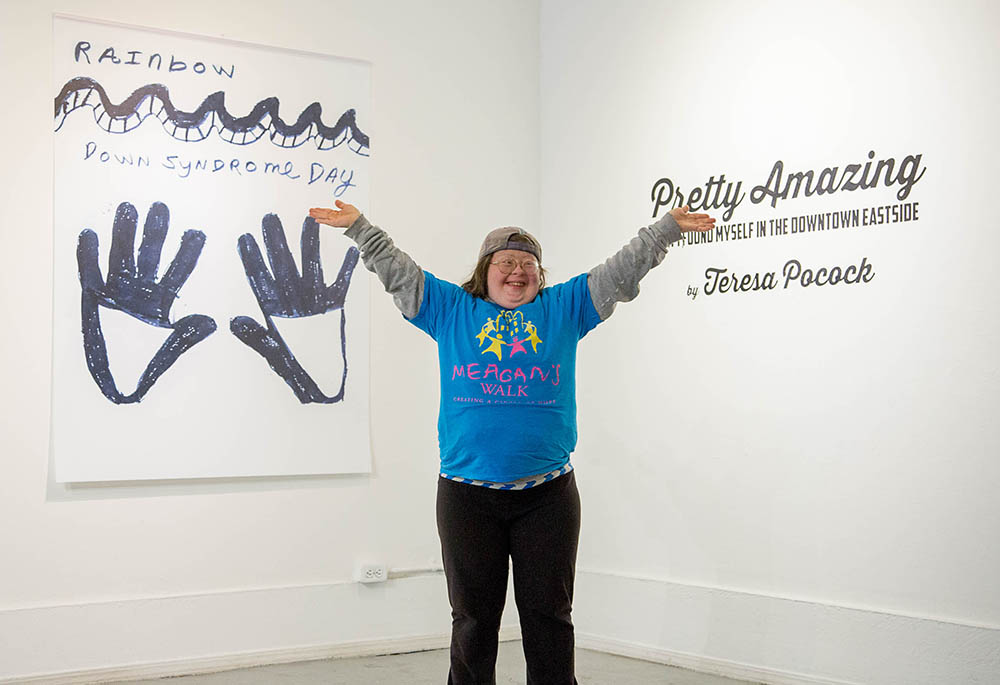

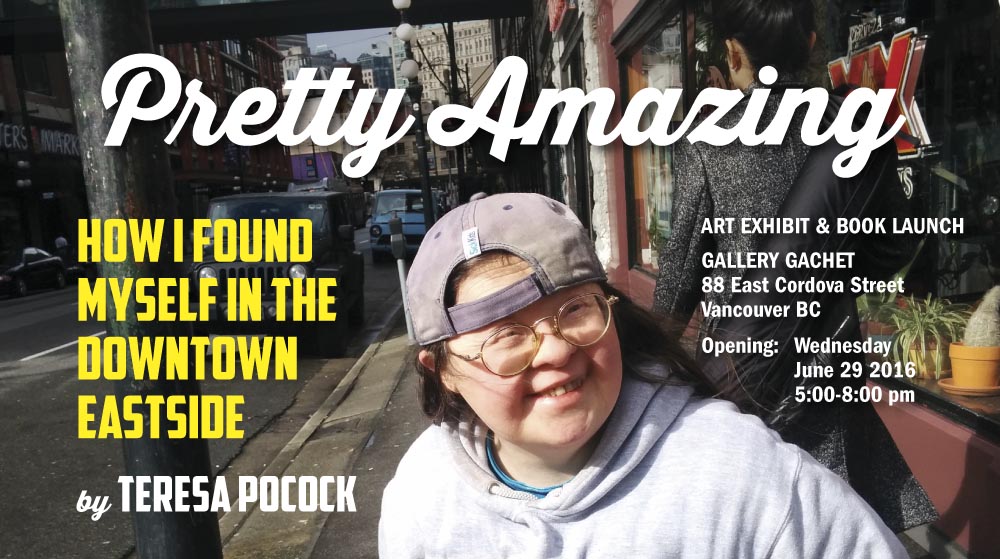


![[iCopyright]](http://d2uzdrx7k4koxz.cloudfront.net/images/icopy-w.png) 2014 Torstar Syndication Services. All rights reserved. Licensed by Mrs Franke James on March 29, 2014. You may obtain additional permissions to reuse this article at the following iCopyright license record:
2014 Torstar Syndication Services. All rights reserved. Licensed by Mrs Franke James on March 29, 2014. You may obtain additional permissions to reuse this article at the following iCopyright license record: 